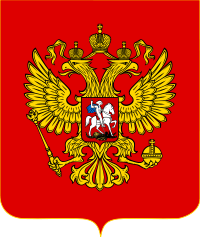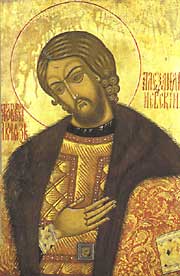Sergei Witte
| Sergei Witte | |
 Sergei in 1905 |
|
|
|
|
|---|---|
| In office 6 November 1905 – 5 May 1906 |
|
| Monarch | Nicholas II |
| Preceded by | New Post (Himself as Chairman of the Committee of Ministers) |
| Succeeded by | Ivan Goremykin |
|
Chairman of the Committee of Ministers
|
|
| In office 1905–1905 |
|
| Monarch | Nicholas II |
| Preceded by | Ivan Nikolayevich Durnovo |
| Succeeded by | Post Abolished (Himself as Prime Minister) |
|
13th Finance Minister of Imperial Russia
|
|
| In office 30 August 1892 – 16 August 1903 |
|
| Preceded by | Ivan Vyshnegradsky |
| Succeeded by | Eduard Pleske |
|
14th Transport Minister of Imperial Russia
|
|
| In office February 1892 – August 1892 |
|
| Preceded by | Adolf Gibbenet |
| Succeeded by | Apollon Krivoshein |
|
|
|
| Born | 29 June 1849 Tiflis |
| Died | 13 March 1915 (aged 65) Petrograd |
| Nationality | Russian |
| Alma mater | Novorossiysk University |
Count Sergei Yulyevich Witte (Russian: Сергей Юльевич Витте, Sergey Yul'evich Vitte) (29 June 1849 - 13 March 1915), also known as Sergius Witte, was a highly influential policy-maker who presided over extensive industrialization within the Russian Empire. He served under the last two emperors of Russia.[1] He was also the author of the October Manifesto of 1905, a precursor to Russia's first constitution, and Chairman of the Council of Ministers (Prime Minister) of the Russian Empire.
Contents |
Family and early life
Witte's father Julius Witte came from a Lutheran Baltic German (originally Dutch) family and had been member of the knightage of the City of Pskov. He converted to Orthodoxy upon marriage with Witte's mother Catherine Fadeyev. Sergei Witte's maternal grandfather was Andrei Mikhailovich Fadeyev, a Governor of Saratov and Privy Councillor of the Caucasus, his grandmother was Princess Helene Dolgoruki, and the mystic Madame Blavatsky was his first cousin. He was born in Tiflis, Georgia and raised in the house of his mother's parents.
He finished Gymnasium I in Chisinau[2] and graduated from Novorossiysk University in Odessa with a degree in mathematics.[3]
After graduating he then spent the greater part of the 1870s and 1880s involved in private enterprises, particularly the administration and management of various railroad lines in Russia.
Political career
Impact on Russian economics
Witte served as Russian Director of Railway Affairs within the Finance Ministry from 1889 - 1891; and during this period, he oversaw an ambitious program of railway construction which included the building of the Trans-Siberian Railway. The Tsar appointed him acting Minister of Ways and Communications in 1892.[3]
Nicholas II transferred Witte to the position of chairman of the Committee of Ministers in 1905, a position he held until 1906.[3] In an attempt to keep up the modernization of the Russian economy Witte called and oversaw the Special Conference on the Needs of the Rural Industry. This conference was to provide recommendations for future reforms and the data to justify those reforms.
Impact on Russian politics

Witte's opposition to Russian designs on Korea caused him to resign from government in 1903.[4] He returned to the forefront in 1905, however, when he was called upon by the Tsar to negotiate an end to the Russo-Japanese War.[3] He was sent as the Russian Emperor's plenipotentiary and titled "his Secretary of State and President of the Committee of Ministers of the Emperor of Russia" along with Baron Roman Rosen, Master of the Imperial Court of Russia[5] to the United States, where the peace talks were being held.
Witte is credited with negotiating brilliantly on Russia's behalf. Despite losing dramatically on the battlefield, Russia lost very little in the final settlement.[3] For his efforts, Witte was created a Count.[6] But the loss of the war would perhaps spell the beginning of the end of Imperial Russia.
After this diplomatic success, Witte was brought back into the governmental decision-making process to help deal with the civil unrest following the war and Bloody Sunday. He was appointed Chairman of the Council of Ministers, the equivalent of Prime Minister, in 1905. During the Russian Revolution of 1905, Witte advocated the creation of an elected parliament, the formation of a constitutional monarchy, and the establishment of a Bill of Rights through the October Manifesto. Many of his reforms were put into place, but they failed to end the unrest. This, and overwhelming victories by left-wing political parties in Russia's first elected parliament, the State Duma, forced Witte to resign as Chairman of the Council of Ministers.
Witte continued in Russian politics as a member of the State Council but never again obtained an administrative role in the government. Just prior to the outbreak of World War I, he urged that Russia stay out of the conflict. His warning that Europe faced calamity if Russia became involved went unheeded, and he died shortly afterwards.
Witte's reputation was burnished in the West when his memoirs were published in 1921. The original text of these memoirs are held in Columbia University Library's Bakhmeteff Archive of Russian and East European History and Culture.[1]
Popular culture depictions
- Freddie Jones in Fall of Eagles
- Laurence Olivier in Nicholas and Alexandra
References
- ↑ 1.0 1.1 Harcave, Sidney. (2004). Count Sergei Witte and the Twilight of Imperial Russia: A Biography, p. xiii.
- ↑ (Russian) Kto-is-kto.ru
- ↑ 3.0 3.1 3.2 3.3 3.4 Harcave, p. xiv.
- ↑ Massie, Robert K. (1967). Nicholas and Alexandra (1st Ballantine ed.). Ballantine Books. p. 90. ISBN 0345438310.
- ↑ "Text of Treaty; Signed by the Emperor of Japan and Czar of Russia," New York Times. October 17, 1905.
- ↑ Massie, Nicholas and Alexandra P.97
Sources
- Davis, Richard Harding, and Alfred Thayer Mahan. (1905). The Russo-Japanese war; a photographic and descriptive review of the great conflict in the Far East, gathered from the reports, records, cable despatches, photographs, etc., etc., of Collier's war correspondents New York: P. F. Collier & Son. OCLC: 21581015
- Harcave, Sidney. (2004). Count Sergei Witte and the Twilight of Imperial Russia: A Biography. Armonk, New York: M.E. Sharpe. 10-ISBN 0-765-61422-7; 13-ISBN 978-0-765-61422-3 (cloth)
- Kokovtsov, Vladamir. (1935). Out of My Past (translator, Laura Matveev). Stanford: Stanford University Press.
- Korostovetz, J.J. (1920). Pre-War Diplomacy The Russo-Japanese Problem. London: British Periodicals Limited.
- Witte, Sergei. (1921). The Memoirs of Count Witte (translator, Abraham Yarmolinsky). New York: Doubleday.
External links
- Portsmouth Peace Treaty, 1905-2005
- Memoirs of Count Witte
- The Museum Meiji Mura -- peace treaty table on display
Portraits
 Study in uniform for group portrait of State Council by Repin. State Tretyakov Gallery, Moscow. |
 Study in white for group portrait of State Council by Repin. State Russian Museum, St Petersburg. |
 "Formal Session of the State Council on 7 May 1901, in honour of the 100th Anniversary of Its Founding" by Repin. Russian Museum. St. Petersburg. |
 Count Sergei Witte. Photograph, taken by Matt Lyne in 1903. |
| Political offices | ||
|---|---|---|
| Preceded by New Post (Himself as Chairman of the Committee of Ministers) |
Prime Minister of Russia 6 November 1905 — 5 May 1906 |
Succeeded by Ivan Goremykin |
| Preceded by Ivan Durnovo |
Chairman of the Committee of Ministers 1903 — 1905 |
Succeeded by Post Abolished (Himself as Prime Minister) |
| Preceded by Ivan Vyshnegradskiy |
Finance Minister 30 August 1892 — 16 August 1903 |
Succeeded by Eduard Pleske |
| Preceded by Adolf Gibbenet |
Transport Minister February, 1892 — August, 1892 |
Succeeded by Apollon Krivoshein |
|
||||||||||||||||||||
|
|||||||||


.jpg)